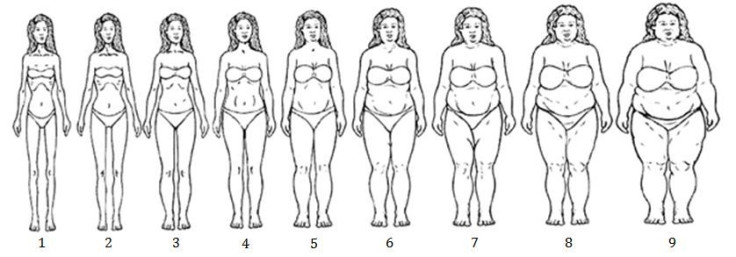Black Women’s Ideas Of Fat Far From Doctors'; May Explain Why Greater Majority Is Overweight

Despite anti-immigration propaganda, the most recent U.S. census revealed that 77 percent of the American population classifies themselves as white. Although black people only make up 13 percent of the nation’s population, black women have a higher obesity demographic than any other group. In order to understand the female black community’s perception of weight, health, and beauty, researchers investigated, and what they found is truly eye-opening.
In a study led by Elizabeth Lynch from Rush University in Illinois, a team of researchers recruited the help of 69 black women. According to a recent press release, although the women involved all shared similar economic backgrounds, lifestyles, and ages, they had various body sizes ranging from underweight to obese. Researchers purposely used such a range in order to determine whether black women’s perception of weight was based on their own body size or on shared cultural beliefs.
Results, published in the Journal of Nutrition, Education, and Behavior, showed that regardless of their weight all women involved in the study agreed over which figures in the Body Image Scale were overweight, obese, and too fat. Although most agreed that figures six through nine were overweight, few went onto agree that these overweight figures were also too fat. The majority did, however, classify figures eight and nine as obese and too fat.

Rather than outright ask the women if they viewed their own bodies as healthy or overweight, the researchers asked the women to match their own figures with the images they had previously categorized. This is where the experiment got interesting. In total, 56 percent of overweight women (BMI 25 or greater) and 40 percent of obese women (BMI 30 or greater) did not classify their own bodies as overweight, obese, or too fat. Astonishingly, only 30 percent of the women who were medically categorized as obese actually viewed their figures as too fat. In fact, it seemed that the generally accepted overweight BMI numbers in the black female participants (BMI of 35) was 10 figures over that accepted by doctors.
In an interesting coincidence, it was observed that those are the exact figures recent studies have shown to be the point when weight begins to threaten lifespan. This coincidence may be explained by Lynch's observation that weight loss in the black community is more driven by the desire to be healthy and stay off medicine than lose pounds.
While the exact figures of black women with eating disorders are unknown, studies have shown that these disorders are somewhat rare among black females, Psychology Today reported. According to Lynch, black and white women generally have differing views on weight and beauty. “Research suggests that for white women the concept of beauty is heavily influenced by body size, and body size is also linked tightly to self-esteem. For black women, though, beauty is defined less by body size, and it's defined more in terms of things like personal style,” Lynch explained in a podcast provided by The Journal of Nutrition, Education, and Behavior. In layman's terms, Lynch explained that, based on her studies, it seems to be easier for black women to be “big and beautiful” than it is for women belonging to other ethnic backgrounds.
While the idea of body confidence and the low numbers of black females with eating disorders may be something noteworthy, there is a point where this body acceptance begins to endanger one’s health. “The fact that women felt that overweight body sizes were not too fat suggests that being told they are overweight, even by a physician, may not be sufficient motivation for them to attempt weight loss,” Lynch explained in the press release.
Instead, ethnically sensitive diet programs may prove more effective in bringing about real weight loss results in black women. Lynch suggests using visual aids rather than terms and numbers to explain obesity and future weight loss goals. This would erase any misunderstanding between doctors and patients and perhaps help the patient better understand the severity of their health issue.
Source: Lynch E, Kane J. Body Size Perception Among African American Women. Journal of Nutrition Education and Behavior. 2014.



























